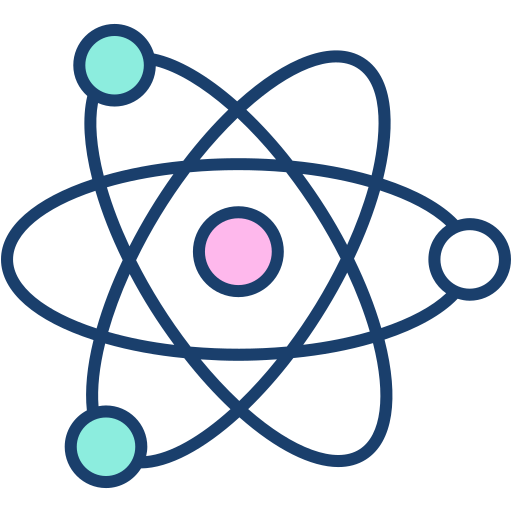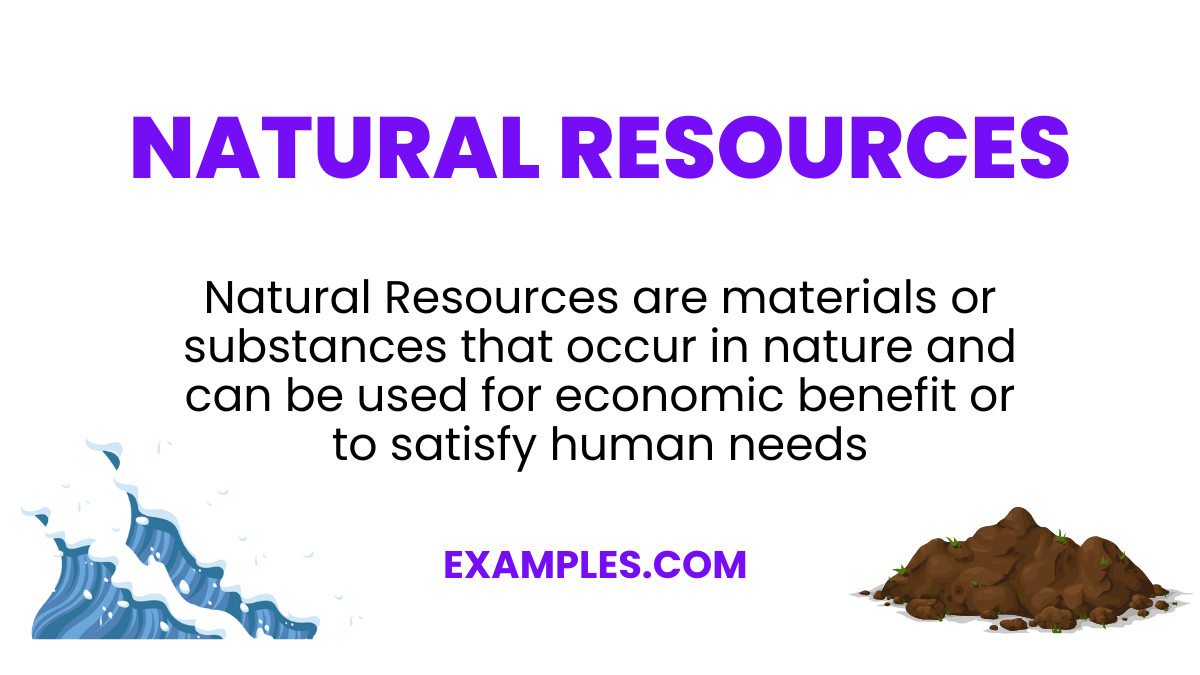Which of the following is considered a renewable resource?
Coal
Oil
Wind
Natural gas


Natural Resources are the cornerstone of our environment and economy. This guide provides an in-depth look into these vital assets, exploring their types, uses, and significance. Ideal for educators and students, it sheds light on how natural resources sustain life and fuel industries. We offer clear definitions and real-world examples, making complex environmental concepts accessible.There are plenty of naturally occurring resources we can observe in our everyday lives and around the world. Some of these natural resources are used in providing people with luxuries in life, like gems and some precious metals. This is juxtaposed with natural resources that have a pivotal role in the survival of the human species.
Natural Resources are materials or substances that occur in nature and can be used for economic benefit or to satisfy human needs. These resources, ranging from water and air to minerals and forests, are fundamental to our existence. They play a crucial role in both ecological balance and human society. This definition sets the stage for students and teachers to explore the diverse types of natural resources and their impact on our lives.
One of the best examples of natural resources is Water. It is essential for all forms of life, supports ecosystems, and is a key component in industrial processes. Water is a renewable resource, but its availability and quality can be significantly impacted by human activities. Its management is crucial for sustainability, making it an ideal example to understand the importance of natural resource conservation and the challenges surrounding their usage.
Natural resources are vital for sustaining life and supporting human civilization. This guide delves into 22 distinct natural resources, each playing a unique role in our environment and economy. From renewable resources like sunlight to non-renewable ones like minerals, these examples cover a wide spectrum. Understanding these resources is crucial for developing sustainable practices and for educational purposes. Teachers and students can use this guide to explore the diversity and importance of natural resources in our daily lives.
Each of these natural resources offers unique benefits and challenges, emphasizing the need for sustainable management and conservation. Teachers can utilize this list to engage students in discussions about environmental stewardship and the diverse ways these resources impact our lives.
Renewable resources can replenish naturally over time, while non-renewable resources have a limited supply and do not renew at a significant rate. Understanding the difference is crucial for sustainable resource management and environmental conservation.
| Aspect | Renewable Resources | Non-Renewable Resources |
|---|---|---|
| Availability | Continuously available or replenishable over time. | Limited availability, can be depleted. |
| Source | Natural processes like solar and wind. | Finite sources like fossil fuels and minerals. |
| Impact on Environment | Generally lower environmental impact. | Often have a significant environmental footprint. |
| Sustainability | Sustainable if used responsibly. | Not sustainable in the long term. |
| Examples | Solar energy, wind energy, hydroelectric power. | Oil, coal, natural gas, minerals. |
| Cost Over Time | Costs tend to decrease over time with technology. | Costs increase as resources become scarce. |
| Renewal Rate | Fast or constant renewal rate. | Extremely slow or no renewal rate. |
Natural resources are vital for survival, economic development, and maintaining ecological balance. They provide the raw materials for our daily needs and activities.
Natural resources possess distinct characteristics that determine their use, management, and conservation.
Natural resources are classified based on their availability, renewability, and origin. This classification helps in understanding their usage, management, and conservation. It is crucial for students and educators to grasp these distinctions for effective environmental stewardship and sustainable resource utilization.
Natural resources come in various forms, each vital for sustaining life and driving economies. Understanding these types helps in their proper utilization and management, critical for sustainable development and environmental conservation.
Some natural resources we use in our everyday life is not renewable. A lot of these non-renewable resources take are pivotal in specific sectors of our life. For example, the lights and electricity we use in our homes are generated by a non-renewable resource. If these resources were to run out or be in short supply, then people will not be able to use electricity in their homes. This is why it is important for us to actively preserve our natural resources.
One of the biggest consumption of non-renewable resources is in the electric industry. Most of our electricity comes from nuclear fission or the burning of fossil fuels. Fossil fuels are a non-renewable resource that generates a lot of electricity, but in turn, will eat a lot of the supply and damage the air quality of the surrounding area.
Purified and drinkable water is a type of commodity that is refined into a distillation process that allows people to drink it without the risk of obtaining bacteria or viruses. Not only that, but people also use purified water for various activities and regiments like showering and bathing. To minimize the usage of purified water, a non-renewable natural resource, it is important to reduce one’s water consumption when showering and brushing one’s teeth.
Plastic is a material that is very hard to decompose and will pose a threat to the environment it is thrown in. This means that people should try to reduce their plastic waste by recycling various containers and plastic bags.
Biodegradable waste or trash can be repurposed and reintroduced to the food chain and web to improve the quality of life of the organisms in said ecosystem. To do our part in reintroducing biodegradable trash, one should segregate their wastes into two different piles based on their ability to degrade.
Natural resources can be classified into two different types: non-renewable and renewable natural resources. A non-renewable resource is a type of natural resource that is finite and will run out if it is not artificially replenished. A renewable resource is a type of natural resource that is infinite and can be replenished over a specific period. The main differences between non-renewable and renewable resources are ways one can replenish the supply of the resource.
Some natural resources are not renewable or will take a long time to replenish. For example, wood from trees is considered a renewable resource but it will take a very long time to replenish. Another example of a natural resource that is considered non-renewable is oil or fossil fuels, which power a lot of electricity around the world. These fuels can’t be renewed and replenished, which means that it has a limit to their usage until it all runs out. This means that there are specific necessities that will be cut short if their non-renewable supply will disappear like electricity. All of this necessitates the importance of conserving natural resources.
Natural resources are resources that a person can gather through hand or various instruments from nature. One of the biggest things we can do for the betterment of humanity is through one’s active conservation of natural resources and minimization of one’s natural resources consumption. Even if one’s conservation action is small, it will cascade into something bigger and better.
Text prompt
Add Tone
22 Natural Resources Examples
Difference between Renewable and Non-Renewable Resources
Which of the following is considered a renewable resource?
Coal
Oil
Wind
Natural gas
What is the main component of natural gas?
Ethane
Propane
Butane
Methane
Which of the following is an example of a nonrenewable resource?
Solar energy
Biomass
Water
Coal
Which sector is the largest consumer of natural resources?
Agriculture
Transportation
Industry
Residential
Which country is the largest producer of crude oil?
Saudi Arabia
Russia
United States
China
What percentage of the Earth's water is fresh and accessible for human use?
50%
30%
10%
Less than 1%
Which of the following is a major environmental concern associated with the use of fossil fuels?
Soil erosion
Deforestation
Air pollution
Water scarcity
What is the main reason for the depletion of the ozone layer?
Carbon dioxide emissions
Methane emissions
Chlorofluorocarbons (CFCs)
Nitrogen oxides
Which of the following energy sources is considered the most efficient in terms of energy output versus energy input?
Solar
Wind
Nuclear
Coal
What is the primary purpose of the Kyoto Protocol?
To protect endangered species
To reduce deforestation
To reduce greenhouse gas emissions
To manage water resources
Before you leave, take our quick quiz to enhance your learning!

